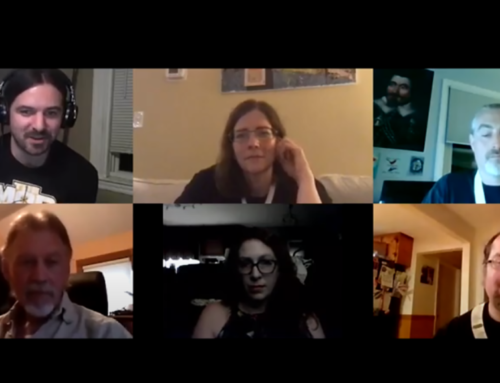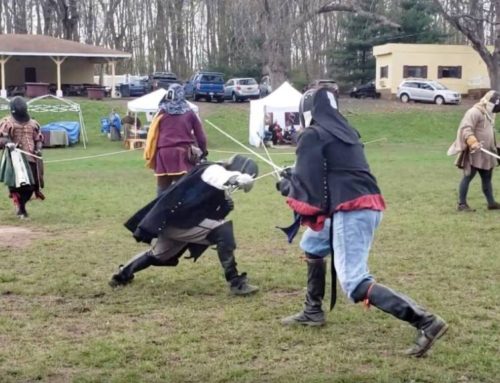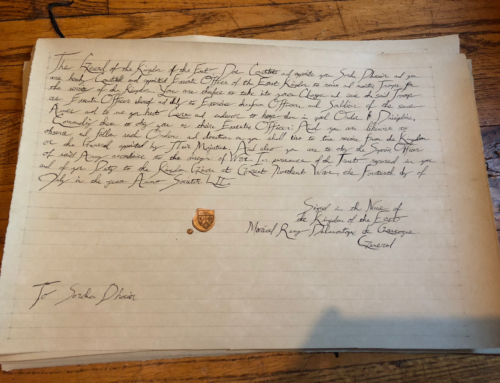“Tourney Headspace” seems to be on a lot of fencers minds these days. Hardly a month doesn’t go by where I’m not part of some conversation, over drinks, talking about what works and doesn’t for fencing competitors.
For better or worse, a lacking “tourney brain” is often blamed for poor performance in tournaments. That’s definitely part of it. Not being properly focused can lead to early exits. I also think there’s a bit of a proper technique gap, especially in the confines fo SCA rapier, but tourney brain/headspace gets the lion share of blame.
I figure I would present my two cents on the issue.
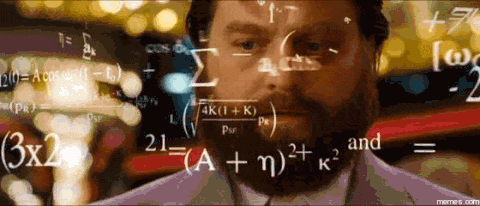
Note: By all means, I don’t think my way is the way. I think it’s one of the unlimited ways someone can prep themselves for a tournament or their next fight. It’s highly customizable, which is both a pro and con.
I also encourage people who are trying to develop their tourney brain to talk to the top fencers in their area to see what they do, read up on sports psychology, and be willing to experiment and fail while figuring out what’s best for you.
My Tourney Head
A common headspace mentality among some of my friends is to be “on” or “angry” (more like faux angry) or “hyper-focused.” It boils down, in some way or form, of shutting out most (if not all) of the outside world and only thinking about the fight at hand.

What I do is almost completely the opposite of that.
The TL;dr version is business in the front, party in the back.
When I’m on the sideline, I’m constantly joking around or talking to people.
Big tournaments are marathons, especially events like the East Kingdom’s King’s & Queen’s Rapier tournament which churned over more than 100 fencers this past fall. I get amped up easy, so controlling that adrenaline is key. I’m going to get a shot of adrenaline anyways; I can’t completely suppress it. But if I can control it enough that I have a clear and level head, I’ll perform much better.
This may sound a bit pretentious, but I practice controlling my adrenaline levels at home or when traveling. I’ll imagine myself in K&Q finals, Pennsic Champs, or any other high-intensity event, fighting the best fencers I know. Usually it’s in the finals when all eyes are on me and it’s do-or-die. I’m fortunate enough that this sparks an adrenaline kick. The drill then becomes trying to suppress (or limit) that spike as much as I can while still imagining how the fight might go.
At the tournament, I keep my adrenaline in check by trying to think about the tournament as little as possible. Talking to friends on the sideline or joking around allows me to stay relaxed and not burn out. Again, big tournies like K&Q Rapier are marathons and I’ll crash if my adrenaline levels get too high too fast. I want to pace it.
Once I’m in the list, however, all that changes. I have a little bit of a ritual that helps me transition into fight mode. I walk into the list and turn away from my opponent while I put on my mask. That’s my transition. As I turn back, it’s all business. My opponent, who’s most likely a friend, is now just someone that I need to put down as efficiently (and honorably) as possible.
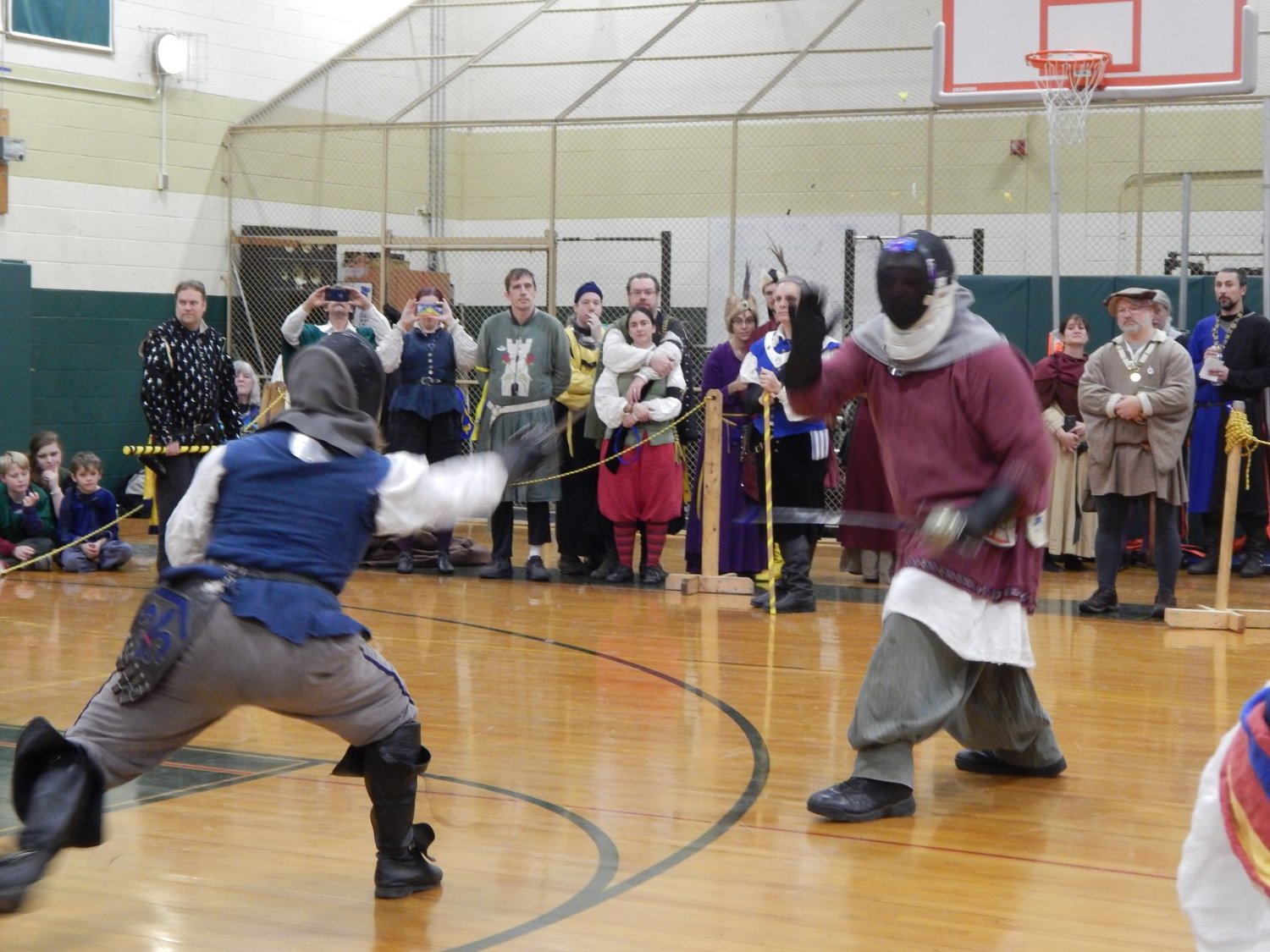
When I’m in the fight, my brain is too busy working for adrenaline spikes to really get in the way. That’s all dealt with on the sidelines, between the long breaks in matches.
I also try to make sure I get a proper mental warmup. I do better when I do a few simple passes before a tournament starts, not to get my muscles primed but to get my mind ready for battle. I worry less about winning those warmup passes but instead make sure I’m seeing the fight unfold, am analyzing motions correctly, and know what the proper responses is.
I also try not to do “tourney math” while fighting, aka figuring out how many fights I need to win to move on. My goal is always to just beat the fighter that’s thrown at me next. Tourney math is a distraction that I think most fighters would be wise to get rid of. Focus on the objective: getting that next win.
How Did I Figure All This Out?
A question I often get is “How did you figure out your tourney head?” I used to say that I just kinda fell into it, but on further thought I think this is not super accurate.
I’ve been playing competitive sports since I was a little kid. That’s 30+ years of “falling into it.” It would be disingenuous to pretend it’s anything but years of experience, trial & error, and grinding XP.
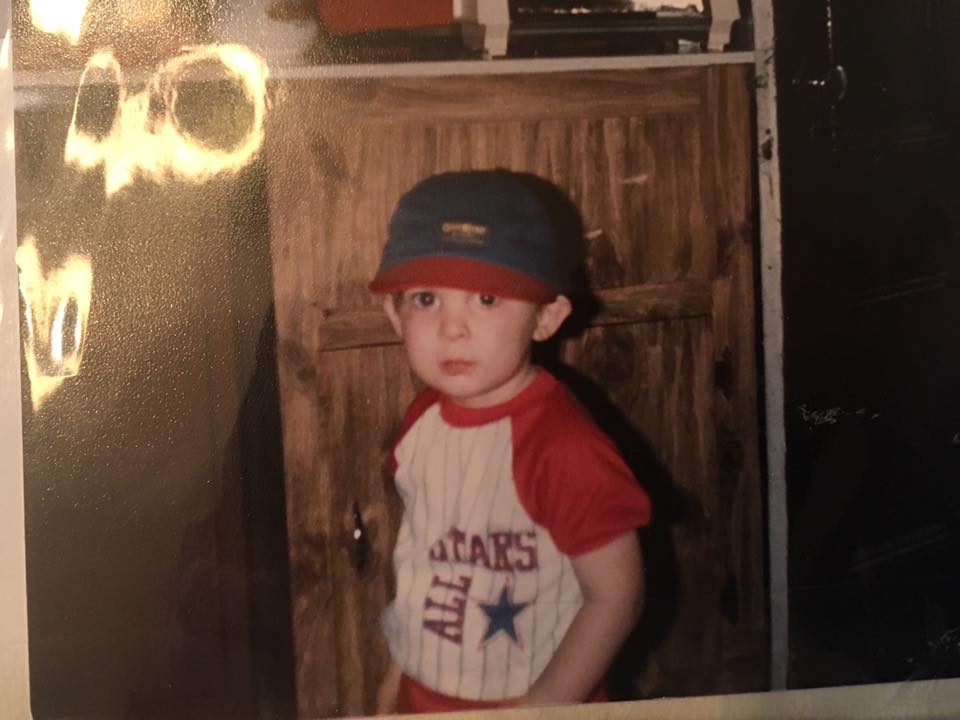
Since I was about five, I’ve played sports. My experience came from various types of sports — baseball, football, basketball, street hockey, soccer, ice hockey and Olympic fencing. I’ve been on craptastic teams as well as numerous championship teams. Because of this, I’ve had more than enough practice being in high-pressure situations in a competitive environment. It gave me plenty of time to fail and succeed.
Of course, as a kid we didn’t call it “tourney head” or even really gave that level of sports psychology any thought. And it was probably a benefit that we didn’t. Figuring out how to be physically and mentally prepared in a game just happened naturally and over time, instead of in the lens of constant worry and performance anxiety.
Most of that experience came in the form of team sports. And lemme tell you, you haven’t felt like complete dogshit until you failed when a success would’ve meant a win, then blamed yourself for letting your team down. When that happens you either walk away from the game and give up or you pick yourself back up, work on filling the holes, and try again.
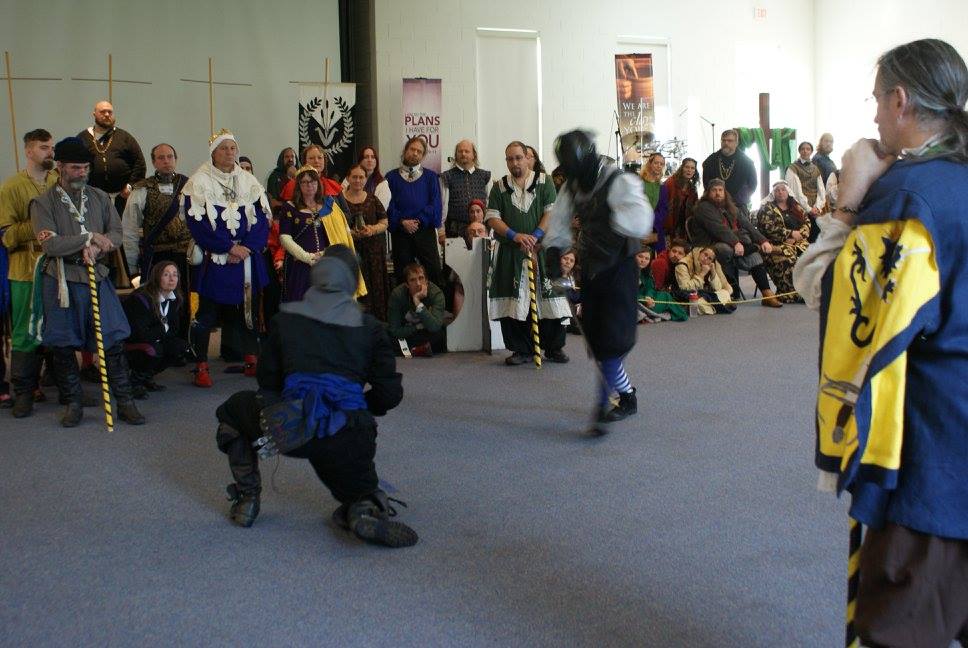
In a more unique experience, I was also typically the smallest and weakest of my age group on any team. As I’ve often joked before, my football coaches used to put rocks, keys and weights in my pockets so I’d be heavy enough to play with other kids my own age. I was that tiny.
What I possessed instead was speed, athletic intelligence, and a lust for sports. That said, being small and weak often made me an underdog. I got cut from teams or benched for other players or insinuated in some other way that I wasn’t good. I learned how to take that weakness and turn it into armor.
That’s translated into not hearing voices in the back of my head whispering that I’m not skilled or I’m going to lose, etc. I don’t have to because I dealt with that growing up.
Wrap Up
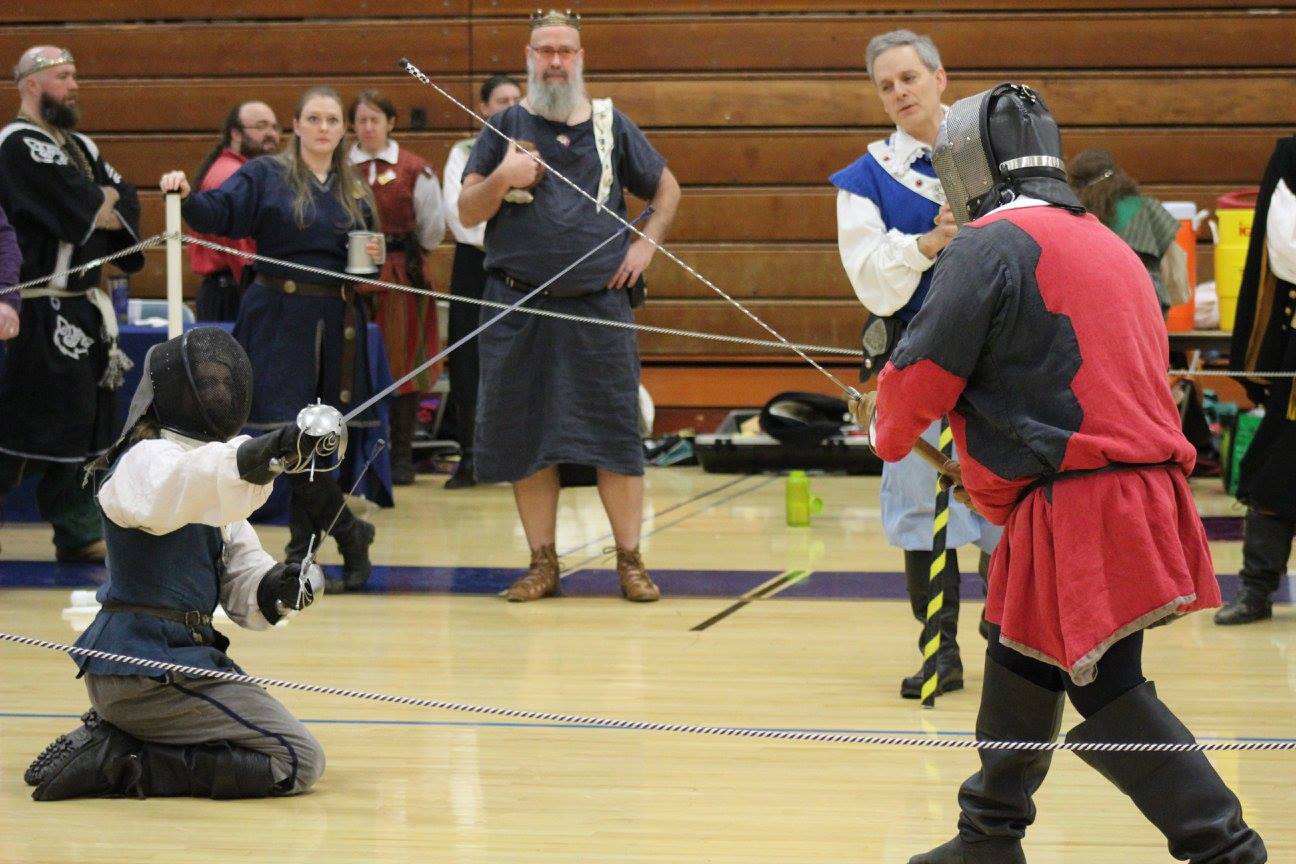
This ended up being a bit longer of a post then I thought it’d be, but I hope some will find it helpful. One doesn’t have to be on the entire tournament, or “get angry/hyper focused” for every second of an event. That may work for some but it’s not going to work for all.
Fencers who are relatively new to competitive sports should also be forgiving of themselves if they don’t perform as well as they believe they should in tournaments, especially if they feel like they got psyched out or are struggling with the brain-side of thinking.
That’s not to say that one shouldn’t ever get disappointed, but realize what your overall experience level is in things and weigh it appropriately. Then keep working to fill holes and get better.
And don’t forget to have fun.
I also recommend reading up on Millicent Rowan’s Tournament Mindset: Anchoring class notes.
What works for you to get in the right competitive headspace?



